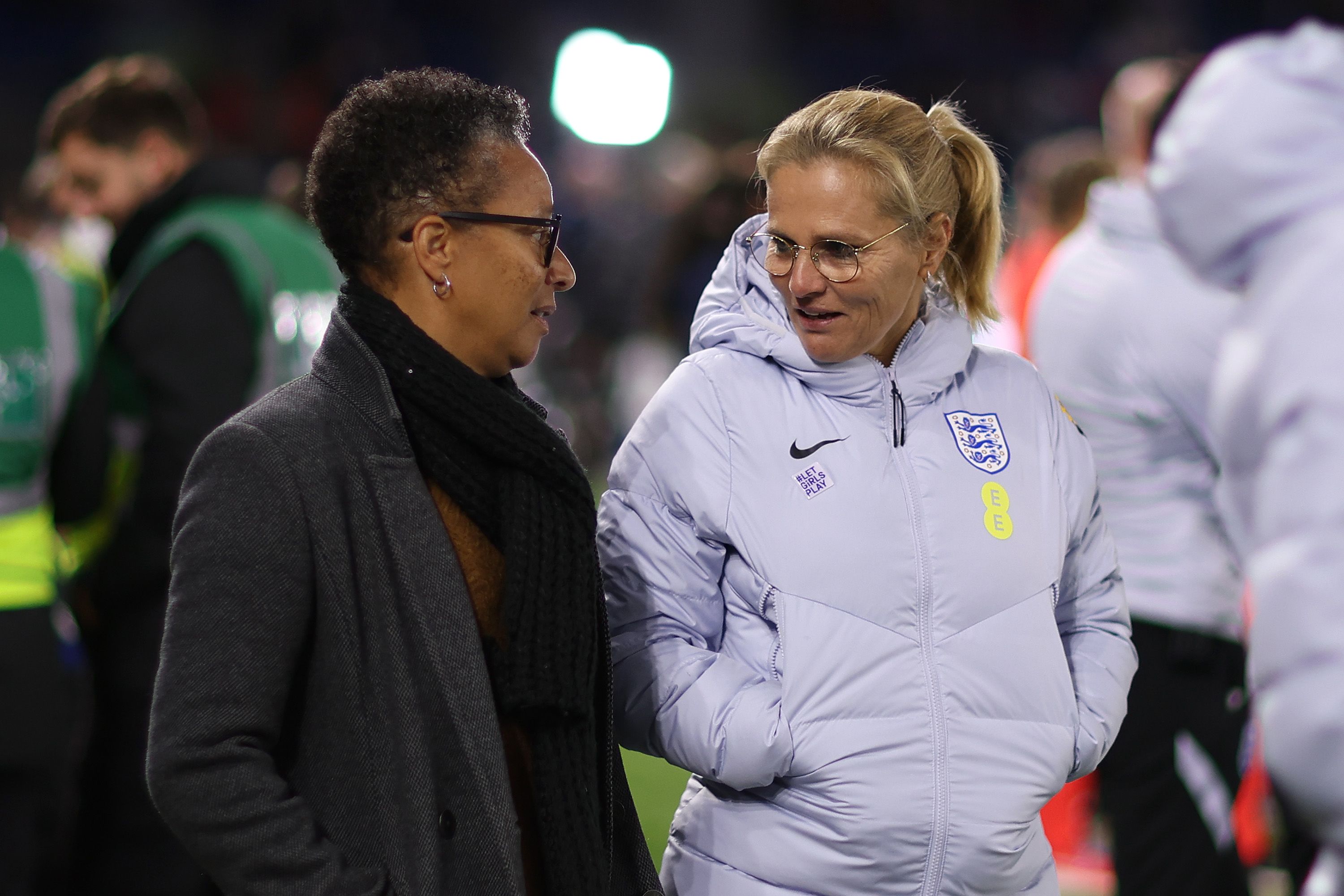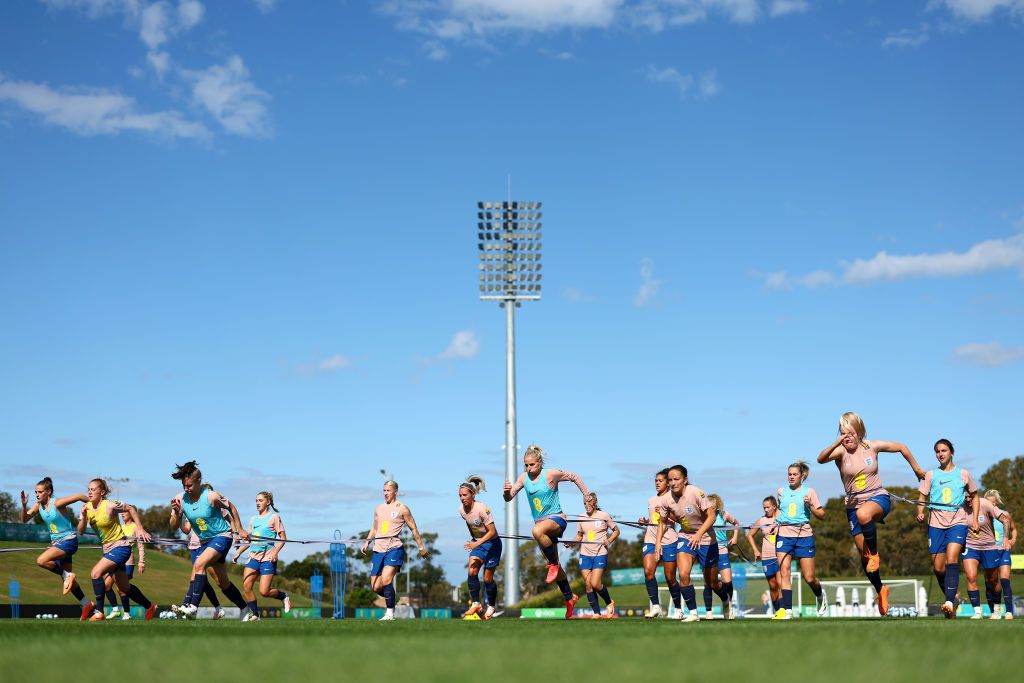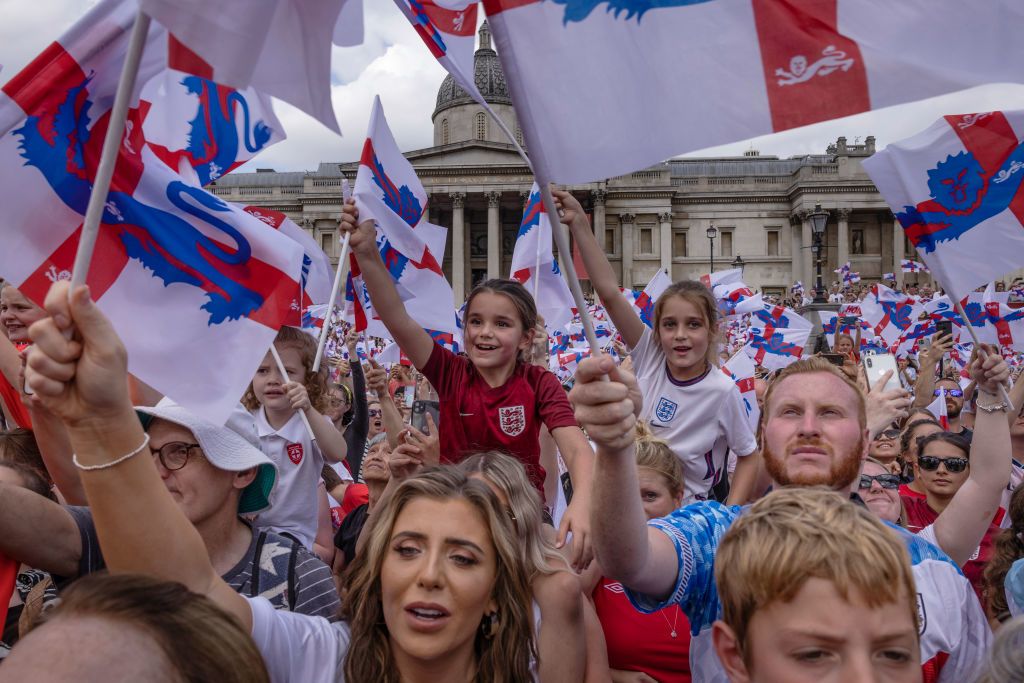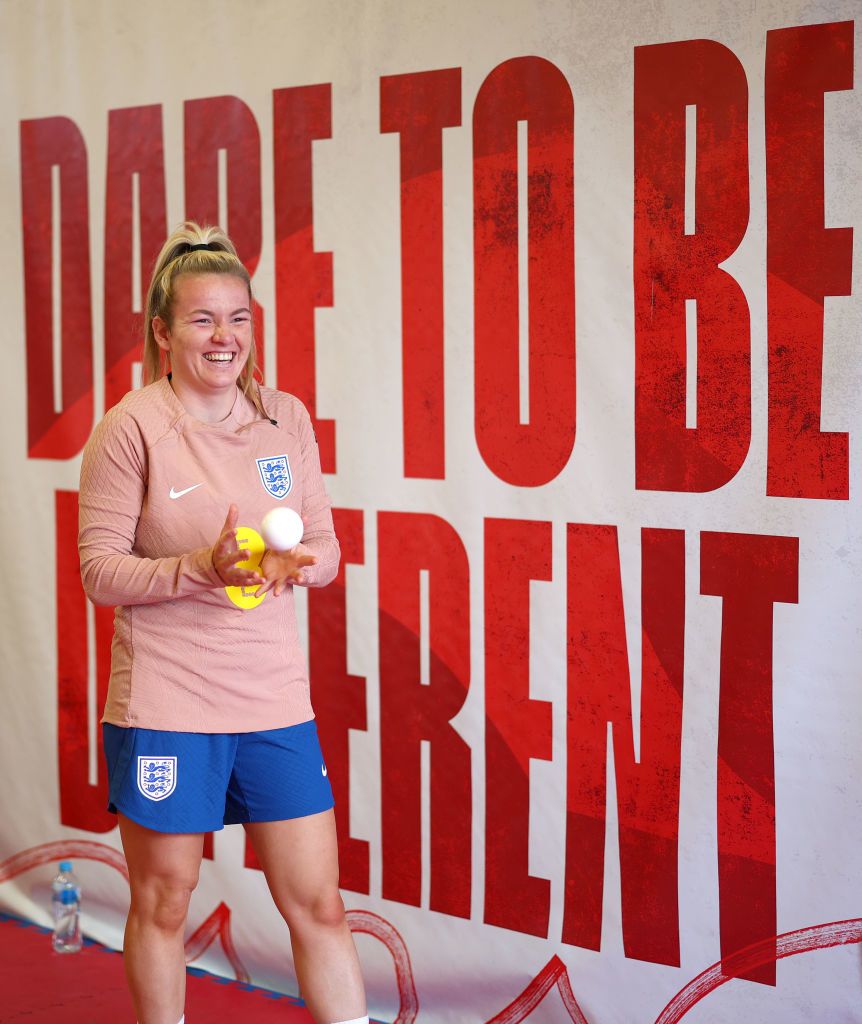Future of Women's Football: 'Milestone £1m transfer in 2024'
Plus, the potential financial growth of the women's game assessed ahead of Thursday's transfer deadline day

The bumper January transfer window was merely an appetiser for what is around the corner for women’s football, which will feast on big-money moves in upcoming editions - with one leading agent predicting a landmark £1m transfer in the next 12 to 18 months.
And that's not all. While the game has witnessed astronomical growth, sports finance experts Deloitte estimates the women's game will hit the billion mark in the coming years as increased attendances, commercialisation and broadcast deals continue to go from strength to strength.
With the women's transfer window closing on Thursday, Sky Sports' Vicki Hodges examines the future of women's football transfers and factors that can enable and sustain financial growth in the game.
‘Landmark £1m transfer will happen in 12-18 months’
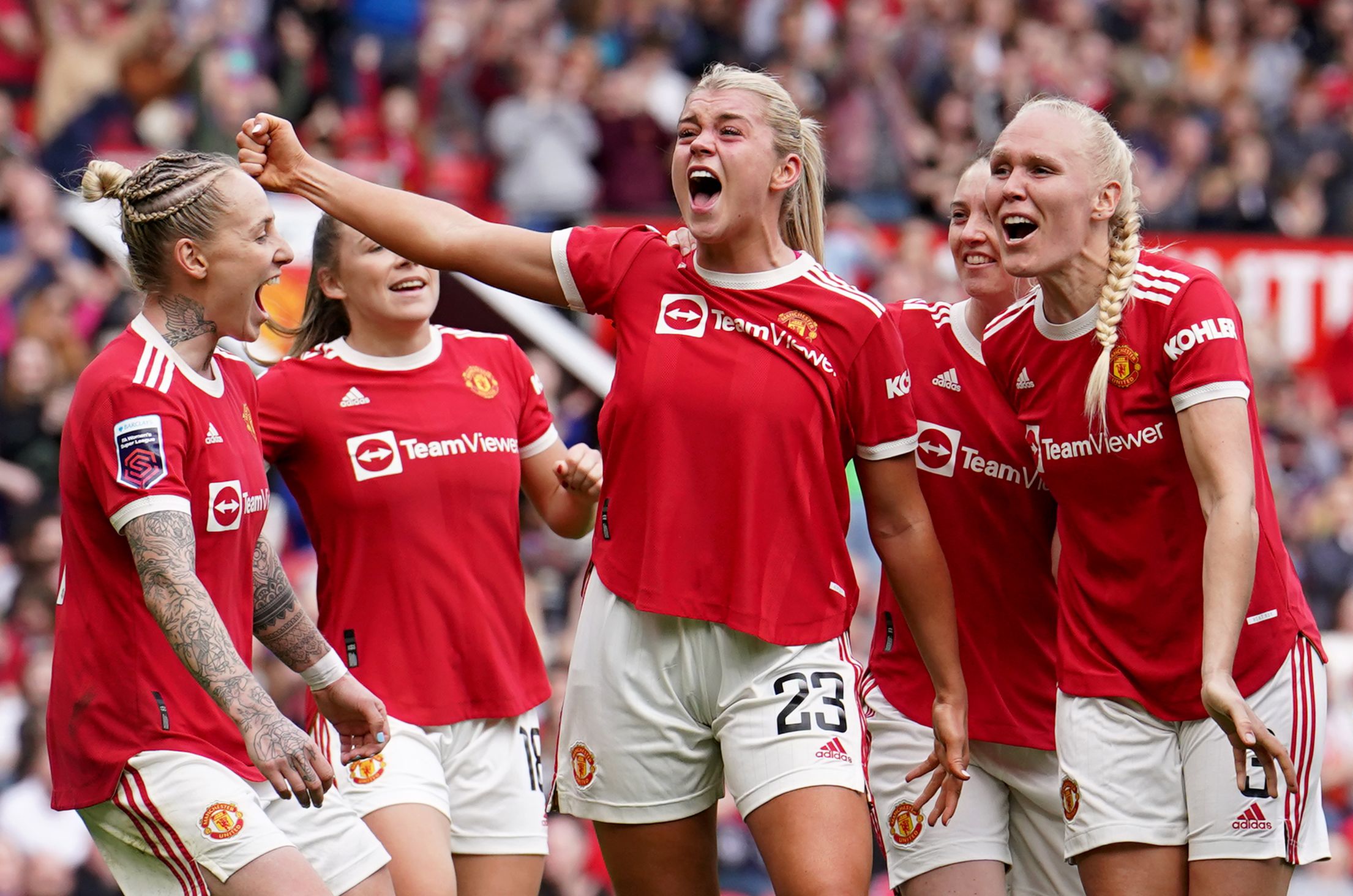
It was the sight of then Manchester United forward Alessia Russo leading the January transfer window rumours in the final days of the month that became the game-changer.
United closed the door on Arsenal's attempts to sign the England international in what would have been a world-record transfer fee in women's football, thought to be just shy of £500,000 - a figure that would have trumped the £400,000 Barcelona paid to Manchester City for midfielder Kiera Walsh last September. Yet United would not be able to hold on to one of their star assets, with the 24-year-old leaving the WSL runners-up this summer.
Ex-Arsenal midfielder Jill Roord became the British-record transfer in July when she left Wolfsburg for Manchester City for £300,000, while Pernille Harder (£250,000 to Chelsea, 2020) and Lauren James (£200,000 to Chelsea, 2021) have also commanded the biggest fees by players in recent years.
However, those figures will pale into insignificance, with one leading agent predicting the much-anticipated £1m transfer in the next year.
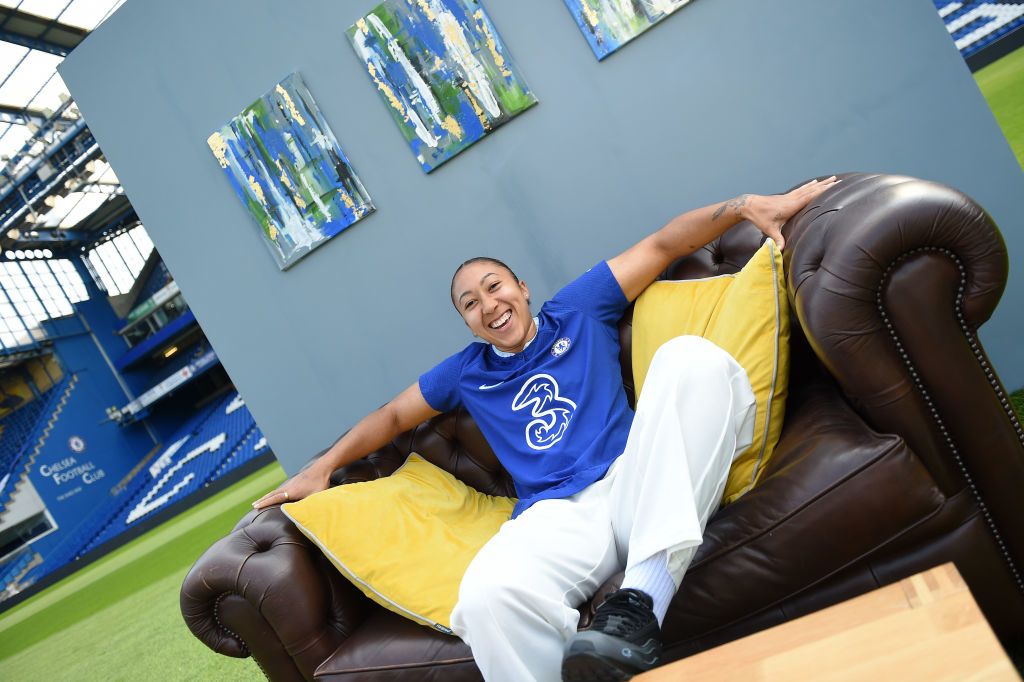
"I think within the next 12 to 18 months we'll be seeing the first £1m transfer - I don’t think we’re far away from it," Reece Land, a football agent and managing director of NextGen Sports and Entertainment who looks after between 20 and 30 clients in the WSL told Sky Sports.
Being on the opposite side of the fence of the transfer window now she is retired, Jill Scott, the former England, Manchester City and Everton midfielder, was swept up by the anticipation and rumour mill during the last window.
"It was nice watching the January transfer window as a fan with all the news around Alessia Russo,” Scott told Sky Sports.
"It probably wasn’t a great time for her because it was a lot of focus on her, but turning on the TV, she was before any of the men's transfers and the speculation, so I was watching it as an excited fan. It's great to see it featured where it should be alongside the men's game.”
Scott, who earned 161 caps for England before retiring after the Lionesses' Euros success last summer, has seen the transformation of the game throughout her career and believes the last few years have shown anything is now possible when it comes to women's football.
"If you look at where it's at now and you look back 10 to 15 years, teams weren't even professional. If you look at the crowds, we've got 50,000 going to some WSL games, whereas 10 to 15 years ago that might have been 200 people.
"When I look at that and look at these other ceilings, it feels like we can smash through anything, should it be a £1m transfer next season - but I think we've just got to be careful that we don't go too quickly because we have to make sure that everything is sustainable and we're doing everything correctly."
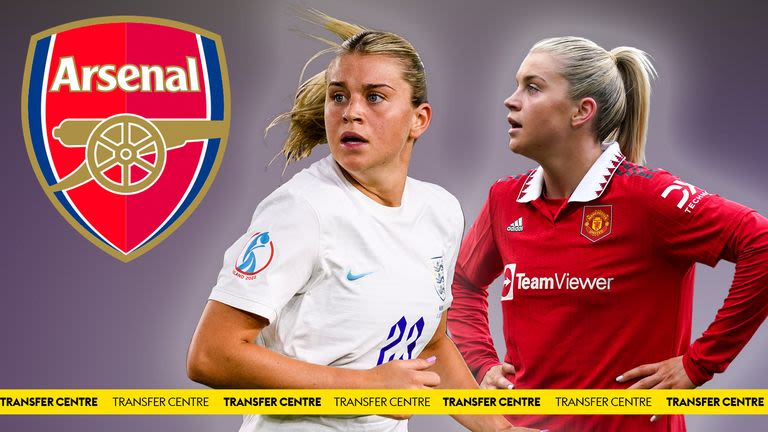
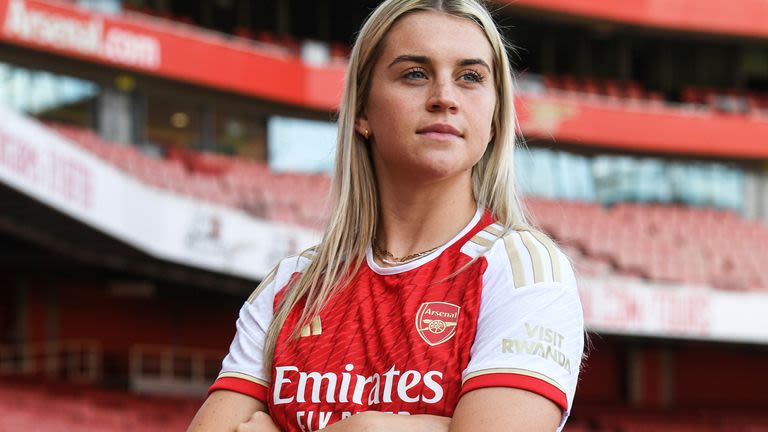
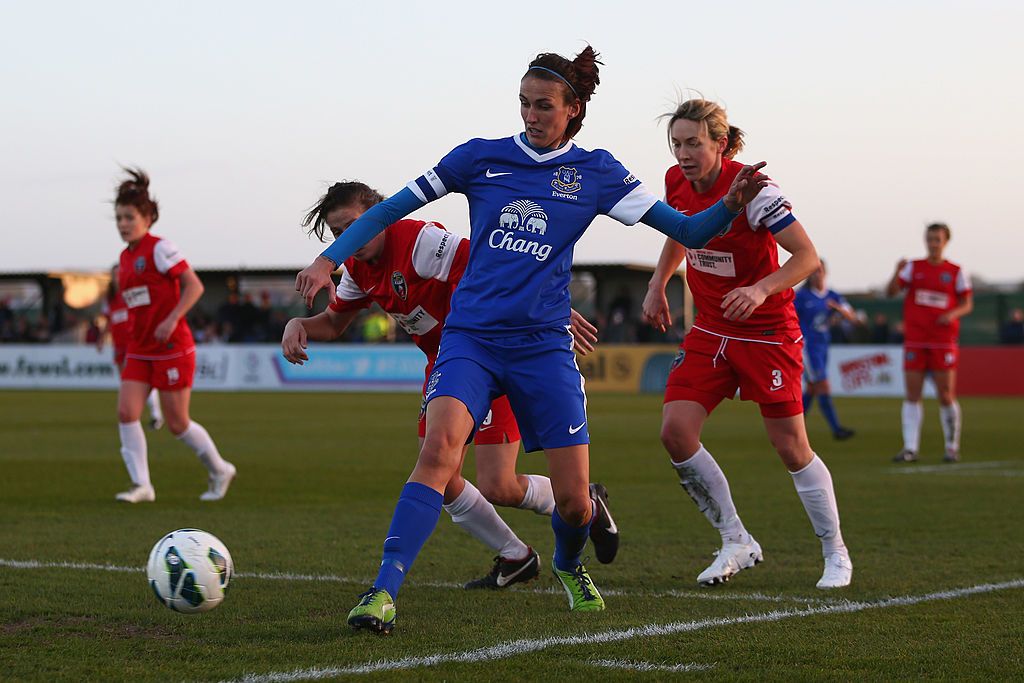
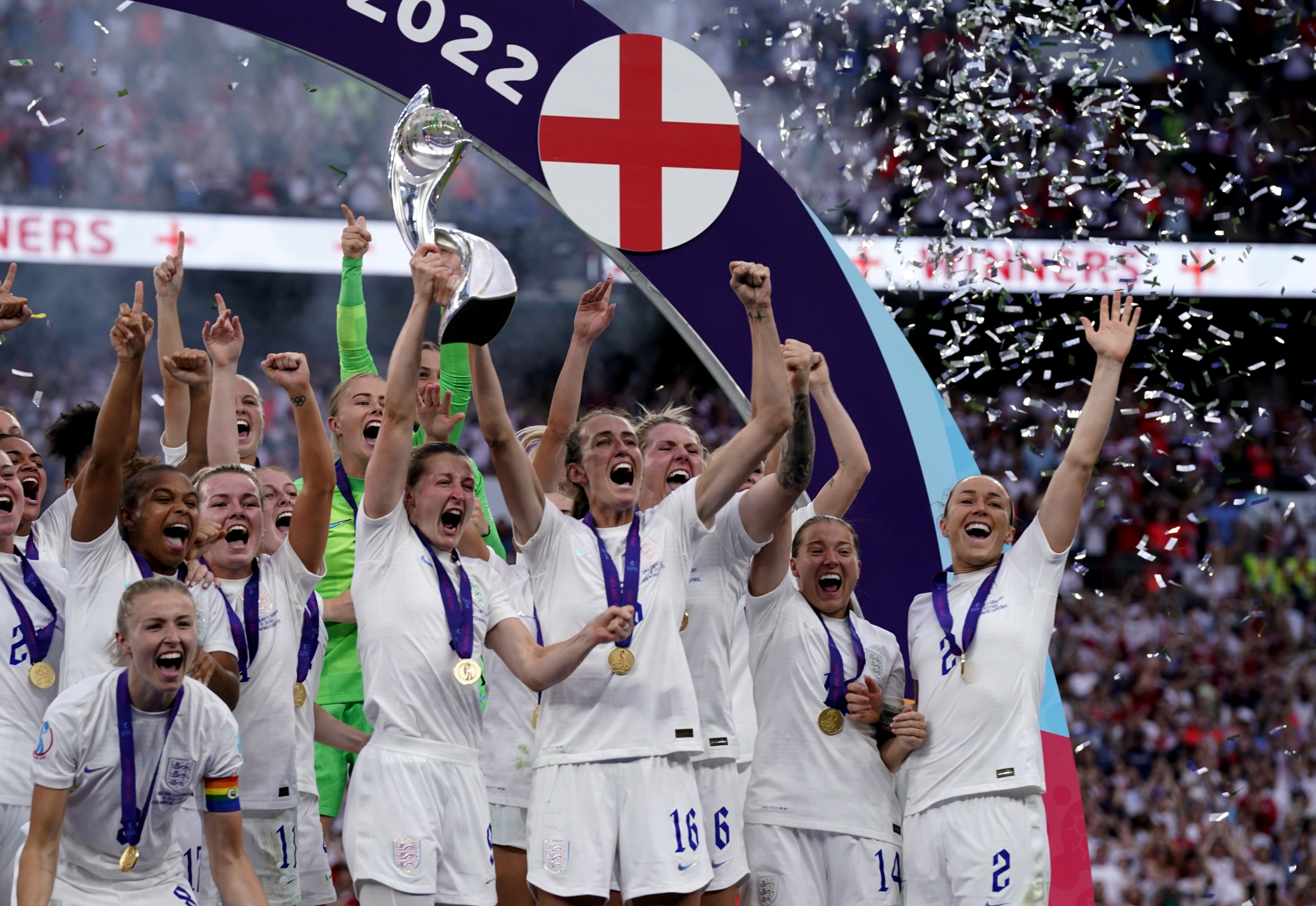
Kelly Smith, the Arsenal and England legend who scored 46 goals in 117 international appearances, concurs with Scott and believes the landmark transfer isn't far around the corner.
"Who would have thought the rumours around Russo being signed by Arsenal for around £450,000 and Keira Walsh's fee being just below that," she told Sky Sports.
"That's the type of quality of player that we're looking at in England. There's talk that Russo didn't move to Arsenal [in January] because Manchester United didn't want to sell to a rival. Years ago that would have happened because the clubs would have needed the money.
"More recently there’s been chat about Ada Hegerberg potentially moving from Lyon to Barcelona.”
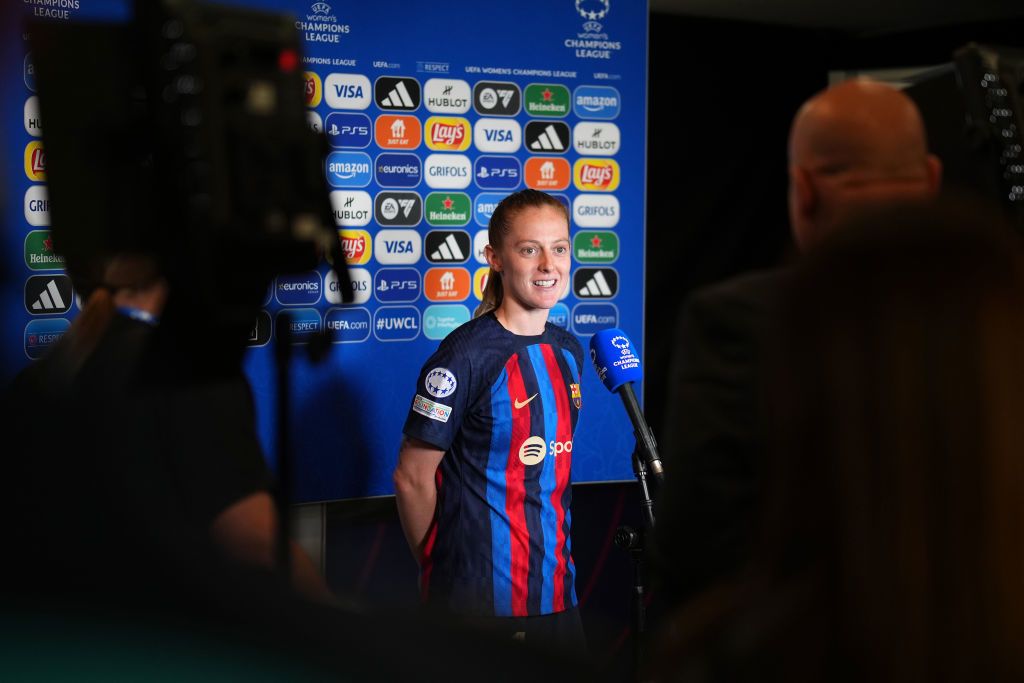
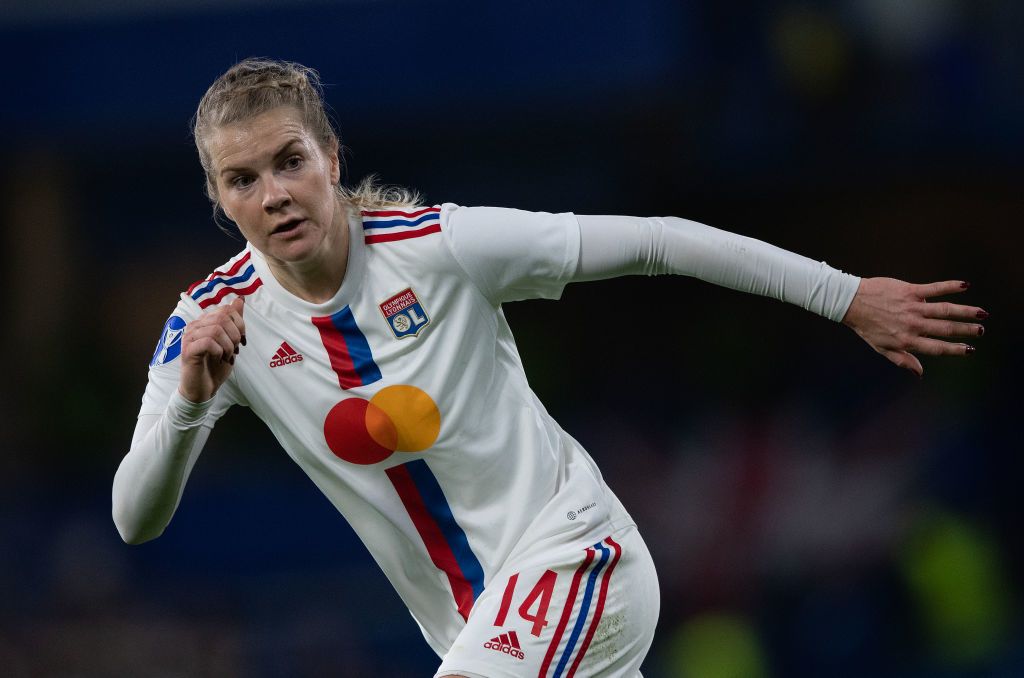
Hegerberg was thought to be the Spanish giants' No 1 target this summer, despite having two bids rejected over the last 12 months, as they look to strengthen a squad already comprising England's Lucy Bronze, two-time Ballon d’Or winner Alexia Putellas and Norwegian winger Caroline Graham Hansen.
Clubs will now consider the commercial value a player could bring to the club, believes Manchester City's Nils Nielsen, who joined the club in May as director of football.
Nielsen, who will take charge of coach and player development across the women's first-team set-up, while leading on player recruitment across the women and girls' pathway at the Academy Stadium, told Sky Sports: "There are a lot of marketing things that are involved in that. How much can you pay for a player?
"If you take the example of [Lionel] Messi and [Cristiano] Ronaldo, they cost a lot of money on the men's side, not only because they were good, but also because the clubs were not afraid of spending a lot of money on them because they knew they would get it back just in commercial things, so they were not so afraid of that.
"I hope some of the girls will be so big that they can do the same thing. It benefits them also that they can get a bigger paycheque, they can get a bigger transfer for the clubs. But because they are more in the media, there is a price to pay for that."
'Women's footballers more loyal and have different views on future'
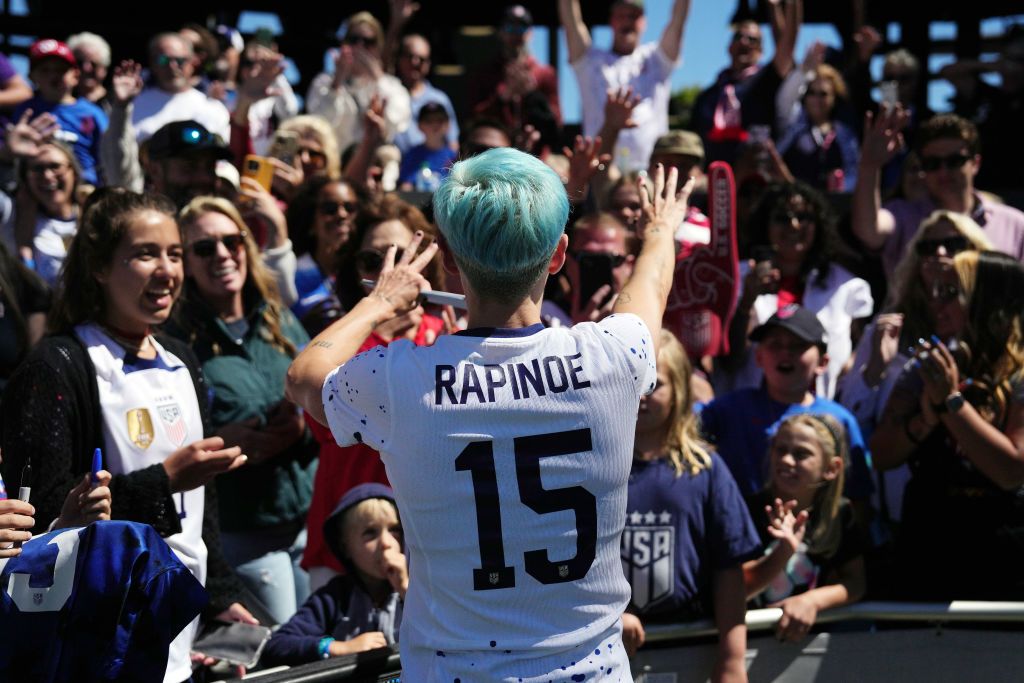
One of the developments in recent windows in women's football has been the high-profile names linked with moves.
While transfers are becoming a growing revenue resource to clubs, there are other factors to consider as Zoe Burton, director in Deloitte's Sports Business Group in the UK - who helped oversee the first Football Money League in the women's game earlier this year - explains to Sky Sports.
"Similar to the men's game, transfers will continue to be a huge part of the revenue strategy for a club and the transfer market, and the transfer approach will have to be really carefully considered," Burton said.
"There are a couple of different elements that need to be considered when we talk about the women's game. The first is around the rules of endorsements for overseas talent. At the moment the rules in the UK are that female players are required to score a total of 24 points across five different categories to gain sponsorship, whereas men's talent only requires 15 points to qualify for sponsorship.
"So actually we won't be seeing the global reach and offer of players just yet, which means that kind of transfer pricing [for overseas players] may slow down and won't increase as much as you might expect.
"Then you have to consider what women's footballers want. One of the key things we've seen, which is different, is an athlete's perspective. So they may be more loyal, they may have different views in terms of what they want to get out of their career and the clubs they play for.
"So the transfer approach is going to not just be about money and about the cost of it. It's also going to be about what a football player wants from their career."
'Women's game will be worth £1bn in the next few years'
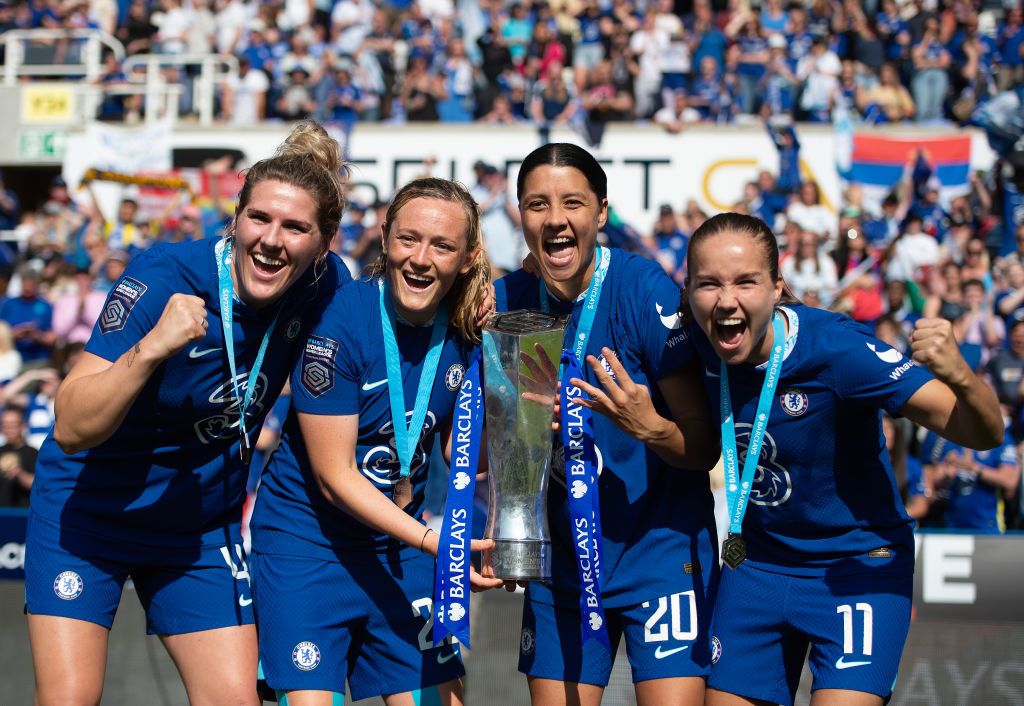
The fear for many fans as the transfer market builds in the women's game is the gulf widening in the top flight of the English game, with the big clubs being able to pick off the best talents from those teams in need of revenue to stay afloat.
Deloitte's Money League report into women's football, which looked at the top 20 revenue-generating clubs in the world, found an average revenue of £2.1m for the 2021/22 season - before the Lionesses' Euros success - with Barcelona generating the highest revenue at £6.8m, followed by Manchester United (£5.3m) and Manchester City (£4.5m).
Chelsea, who clinched their fourth successive WSL title last season, were seventh in the table (£1.6m) behind Paris Saint-Germain, Arsenal and Tottenham.
Many other clubs, meanwhile, are still operating at a loss, but opportunity and good governance could maintain a competitive league, says Burton.
"The other angle to look at [to a widening gulf in the league] is some of the clubs which don't have an affiliation with the men's team," she explained. "They might be more attractive to investors who purely want to invest in women's football or women's sport.
"So I think, while it might be seen as a risk at the moment, trying to look at the opportunities as to how that could grow the game in a slightly different way will be important."
Moving forward, the game overall is predicted to reach new financial heights, with Deloitte estimating it to be worth 10 figures.
"When we looked at the broader women's sport market, our 2021/22 prediction was that we believed that women's sport could grow to be worth more than a billion in the years ahead," Burton concluded.
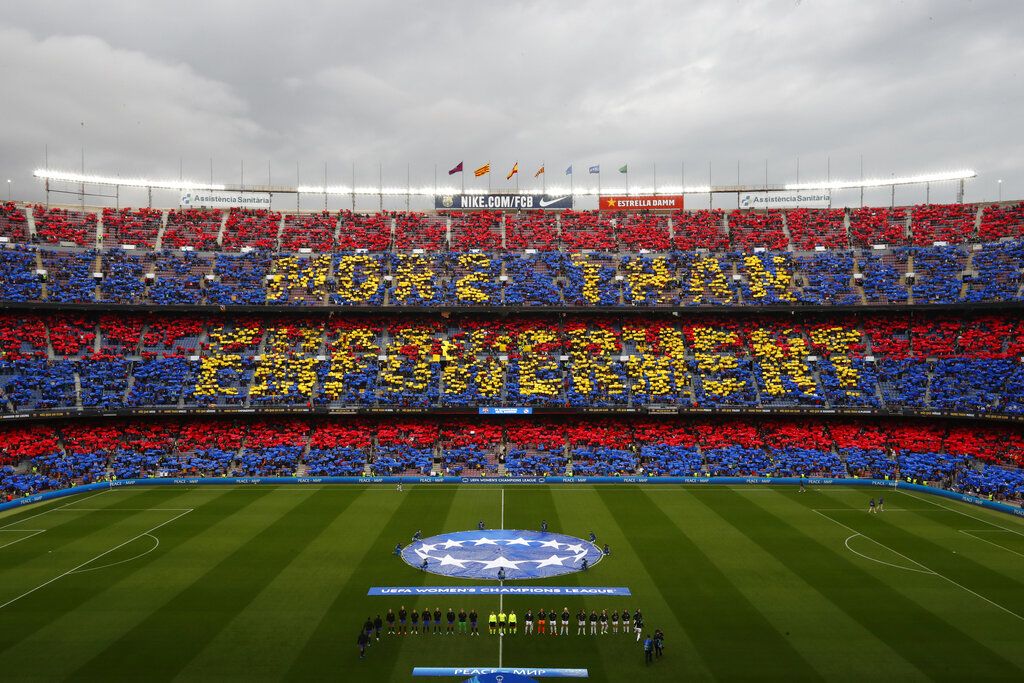
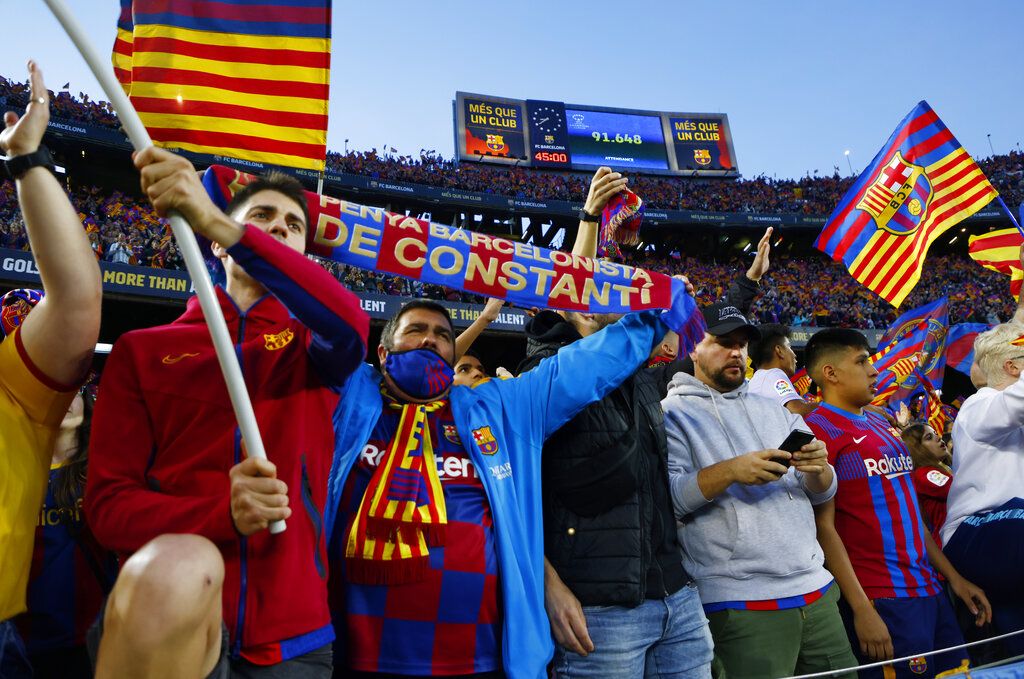
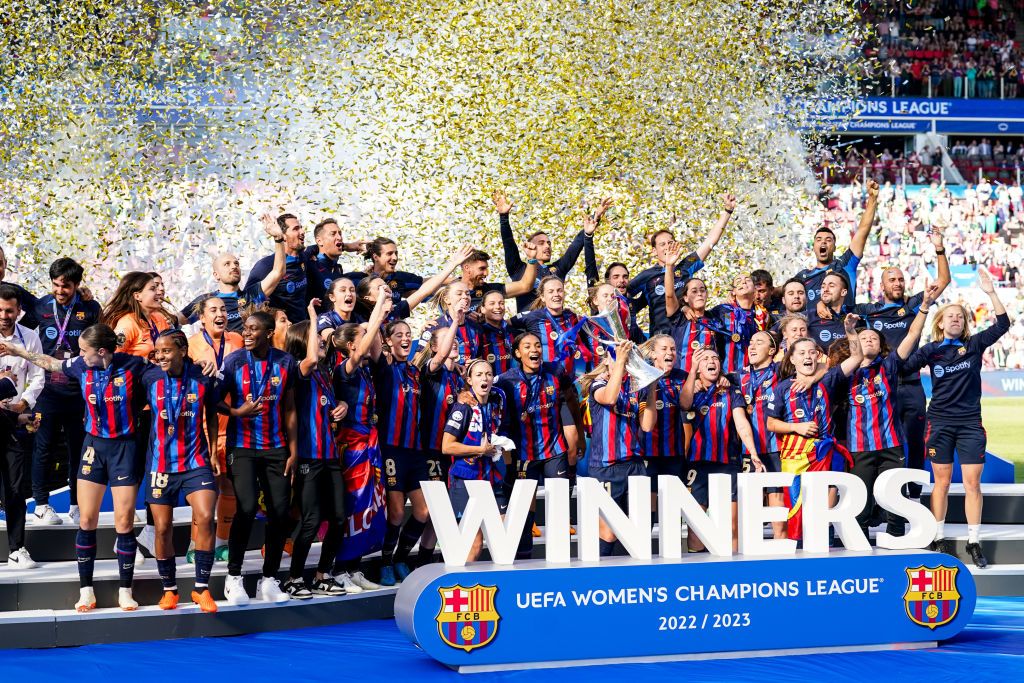
The figure might be headline-grabbing but for many working in the game on a daily basis, fan retention and growth remain key to keeping women's football on track.
For Land, who admits he ignored those around him to pursue a career in women's football over fears it wasn't a viable business venture when he launched his agency eight years ago, strategy around use of main stadiums and a proactive marketing plan is vital.
"The only way that women's football is ever going to become self-sustainable and narrow that gap is when stadiums become full week in, week out," he said. "I'm not a massive fan of going into the men's stadium one week and getting 40,000 and then going back to the women's stadium a week after getting 600. That's not a sustainable business model."
"I know the governing bodies like to use these big numbers and say, 'we've broken this attendance and we've broken this attendance record', but it's not a sustainable business model and anyone who has half a common sense knows that. But in terms of what we can do to fix it, we need bums on seats - very, very simple.
Hope Powell, the former England manager who joined Birmingham Women as technical director this summer, also has concerns over rising wage costs and a gulf continuing to widen in the women's game.
Powell, who led England to two World Cup quarter-finals and managed the Great Britain team at the 2012 London Olympics during her 15-year career at the FA, told Sky Sports: "I'm just hoping that the top end of the game doesn't sort of detach itself from the grassroots game.
"The grassroots game is the future here. All the England players, every international female player came through a grassroots program. They all played as young kids in the park, at school.
"The fact now that the women's game is professional is great and is what we all wanted. But if you're a professional earning £20,000 a year, how do you live? That's not sustainable for somebody to stay in the game. Quite often players are professional footballers and still have some jobs.
"So we've got to make sure that, as professional footballers, there's an affordability to be able to live and do that as your full-time job. I don't think we're quite there yet. The wages are better than it's ever been. The fact that young girls can aspire now to be professional footballers is fantastic.
"That was my dream. But we just have to make sure that the game doesn't become detached. Those at the very top and everybody shouting and singing - let's take care of the whole pathway."
For more Future of Women's Football stories, visit Sky Sports.com and the Sky Sports app.
